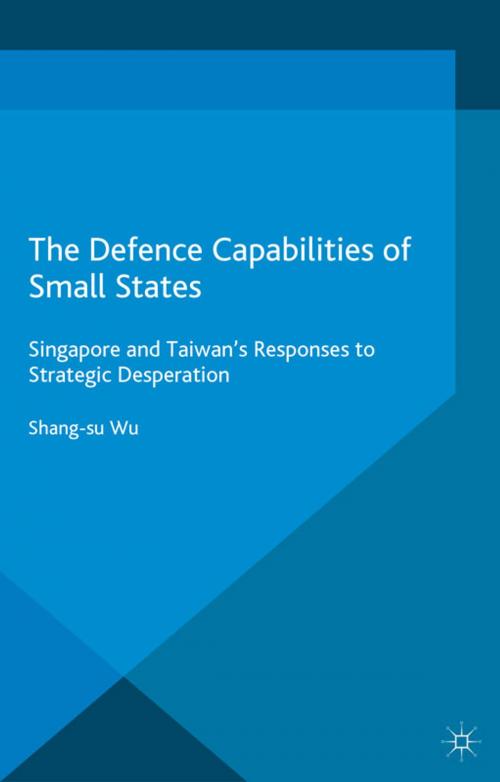The Defence Capabilities of Small States
Singapore and Taiwan’s Responses to Strategic Desperation
Nonfiction, Social & Cultural Studies, Political Science, International, International Security, International Relations, Social Science| Author: | Shang-su Wu | ISBN: | 9781137497161 |
| Publisher: | Palgrave Macmillan UK | Publication: | November 24, 2016 |
| Imprint: | Palgrave Macmillan | Language: | English |
| Author: | Shang-su Wu |
| ISBN: | 9781137497161 |
| Publisher: | Palgrave Macmillan UK |
| Publication: | November 24, 2016 |
| Imprint: | Palgrave Macmillan |
| Language: | English |
A comparison of Singapore and Taiwan presents an interesting case study for those wishing to understand how small states struggle to overcome their strategic disadvantage. Since their independence, Singapore and Taiwan have faced numerous challenges resulting from their relative strategic disadvantage. They have struggled to overcome vulnerable bases, an unformed conception of state, and weak governmental institutes for defence. While territorial borders are difficult to change, both states have focused on nation building, economic growth, and military build-up in order to overcome their predicaments. During the Cold War, both states employed similarly authoritarian policies to preserve their survival. However, in the post-Cold War era, Taiwan has experienced political and economic weakness in the face of the rising China, while Singapore, with its polity of one-party domination, has continued to strengthen its hard and soft power. This book examines the unique context for each case, drawing comparisons and offering analysis of their distinct approaches.
A comparison of Singapore and Taiwan presents an interesting case study for those wishing to understand how small states struggle to overcome their strategic disadvantage. Since their independence, Singapore and Taiwan have faced numerous challenges resulting from their relative strategic disadvantage. They have struggled to overcome vulnerable bases, an unformed conception of state, and weak governmental institutes for defence. While territorial borders are difficult to change, both states have focused on nation building, economic growth, and military build-up in order to overcome their predicaments. During the Cold War, both states employed similarly authoritarian policies to preserve their survival. However, in the post-Cold War era, Taiwan has experienced political and economic weakness in the face of the rising China, while Singapore, with its polity of one-party domination, has continued to strengthen its hard and soft power. This book examines the unique context for each case, drawing comparisons and offering analysis of their distinct approaches.















